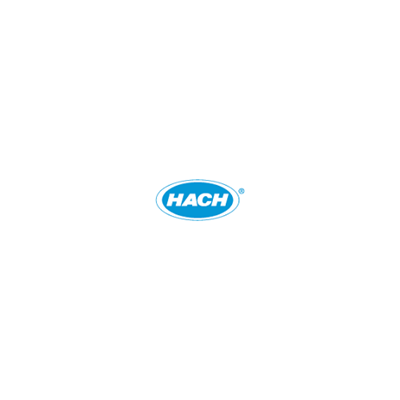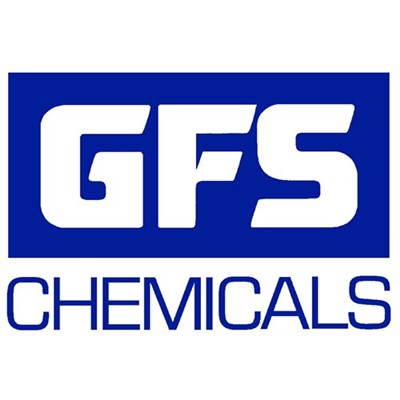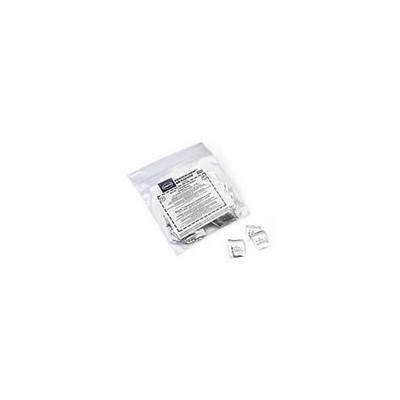Search in Category
Chemicals-D
Search term required.
Filter Your Search
 Concentration
Concentration
 Container
Container
 Name
Name
 Size
Size
 Type
Type
 Brand
Brand
Browse Categories
Loading...
Chemicals-D
Viewing Page 1 of 15
(142 results)
DPD Total Chlorine Reagent Powder Pillow
Item #:
HCH/2105669
Supplier #: 2105669
Supplier #: 2105669
Dpd Chlorine Total Reagent Powder Pillows Pack Of 100 Usepa Accepted For Reporting Drinking And Wastewater Analysis Using Hach Method 8167.Sample Size 10 Ml.Range Up To 2.00 Mg/L.Pk/100 Powder Pillows. Exact Match 97009-464
Drierite Indicating, 8 Mesh, 5lbs
DPD Free Chlorine Reagent Powder Pillow
Item #:
HCH/2105569
Supplier #: 2105569
Supplier #: 2105569
Dpd Method Free Chlorine Reagent Powder Pillows Pk100 Usepa Accepted For Reporting Drinking Water Analysis Using Hach Method 8021.Sample Size 10 Ml.Range Up To 2.00 Mg/L.For Best Results Use With A Hach Colorimeter Or Spectrophotometer. Exact Match 97009-454
Dimethyl Sulfoxide ACS Grade 4L
Item #:
VAN/BDH1115-4LP
Supplier #: BDH1115-4LP
Supplier #: BDH1115-4LP
VWR International BDH1115-4LP
BDH Dimethyl Sulfoxide 4L Poly BDH Dimethyl Sulfoxide Is Suitable For General Laboratory Use Including Cytology, Histology, Organic Synthesis, Cleaning, Prep Scale Synthesis. Packaged 4-Liter Plastic Bottles, With 4 Bottles Per Case. ACS Certified.
BDH Dimethyl Sulfoxide 4L Poly BDH Dimethyl Sulfoxide Is Suitable For General Laboratory Use Including Cytology, Histology, Organic Synthesis, Cleaning, Prep Scale Synthesis. Packaged 4-Liter Plastic Bottles, With 4 Bottles Per Case. ACS Certified.
Doctor Solution (Sod Plumbite), 4 L
Item #:
RIC/2650-1
Supplier #: 2650-1
Supplier #: 2650-1
Doctor Solution, Sodium Plumbite, Clear, colorless, May have slight orange sediment; Ricca Chemical; 4L; Poly natural; CAS: 1317-36-8 (Lead Monoxide); 1310-73-2 (Sodium Hydroxide); 7732-18-5 (Water, Deionized); 1/EA Exact Match 26501
Dextrose, Anhydrous, ACS, 500 g
Item #:
RIC/RDCD0200-500B1
Supplier #: RDCD0200-500B1
Supplier #: RDCD0200-500B1
Dextrose Anhydrous ACS Reagent Grade Ricca Chemical; 500g; Poly wht WM; CAS: 50-99-7 (D-Glucose); 1/EA Exact Match RDCD0200500
Dissolved Oxygen Rhodazine Refill Kit
Item #:
TMS/9866E71
Supplier #: 9866E71
Supplier #: 9866E71
CHEMetrics Part No. R-7540
The level of dissolved oxygen in natural waters is often a direct indication of quality, since aquatic plants produce oxygen, while microorganisms generally consume it as they feed on pollutants. At low temperatures the solubility of oxygen is increased; during summer, saturation levels can be as low as 4 ppm. Dissolved oxygen (D.O.) is essential for the support of fish and other aquatic life and aids in the natural decomposition of organic matter. Waste treatment plants that employ aerobic digestion must maintain a level of at least 2 ppm dissolved oxygen. At elevated temperatures, oxygen is highly corrosive to metals, causing pitting in ferrous systems such as high-pressure boilers and deep well oil recovery equipment. To prevent costly corrosion damage, the liquids in contact with the metal surfaces must be treated, usually by a combination of physical and chemical means. Deaeration can reduce the dissolved oxygen concentration of boiler feedwater from several ppm to a few ppb. Chemical reducing agents such as hydrazine, DEHA, or sodium sulfite, may be used instead of or in conjunction with deaeration. The Indigo Carmine Method References: ASTM D 888-87, Dissolved Oxygen in Water, Test Method A. Gilbert, T. W., Behymer, T. D., Castañeda, H. B., "Determination of Dissolved Oxygen in Natural and Wastewaters," American Laboratory, March 1982, pp. 119-134. Test kits for environmental and drinking water applications (ppm range) employ the indigo carmine method. The reduced form of indigo carmine reacts with D.O. to form a blue product. The indigo carmine methodology is not subject to interferences from temperature, salinity, or dissolved gases such as sulfide, which plague users of D.O. meters. Results are expressed as ppm (mg/L) O2. The Rhodazine D™ Method References: Developed by CHEMetrics, Inc. ASTM Power Plant Manual, 1st. ed. p. 169 (1984). ASTM D 5543-15, Low Level Dissolved Oxygen in Water. Department of the Navy, Final Report of NAVSECPHILADIV Project A - 1598, Evaluation of CHEMetrics Feedwater Dissolved Oxygen Test Kit (1975). Test kits for boiler waters and applications requiring trace levels of D.O. (ppb range) employ the Rhodazine D methodology. Developed by CHEMetrics, Inc., and approved by ASTM as the reference method for ppb D.O. determination, the Rhodazine D compound in reduced form reacts with dissolved oxygen to form a bright pink reaction product. The method is not subject to salinity or dissolved gas interferences. Oxidizing agents, including benzoquinone, can cause high results. Reducing agents such as hydrazine and sulfite do not interfere. Results are expressed as ppm (mg/L) or ppb (ug/L) O2. Low-range dissolved oxygen test kits include a special sampling tube for use with boiler feedwater. This device allows the user to break the tip of the ampoule in a flowing sample stream in order to preclude error from contamination by atmospheric oxygen.
The level of dissolved oxygen in natural waters is often a direct indication of quality, since aquatic plants produce oxygen, while microorganisms generally consume it as they feed on pollutants. At low temperatures the solubility of oxygen is increased; during summer, saturation levels can be as low as 4 ppm. Dissolved oxygen (D.O.) is essential for the support of fish and other aquatic life and aids in the natural decomposition of organic matter. Waste treatment plants that employ aerobic digestion must maintain a level of at least 2 ppm dissolved oxygen. At elevated temperatures, oxygen is highly corrosive to metals, causing pitting in ferrous systems such as high-pressure boilers and deep well oil recovery equipment. To prevent costly corrosion damage, the liquids in contact with the metal surfaces must be treated, usually by a combination of physical and chemical means. Deaeration can reduce the dissolved oxygen concentration of boiler feedwater from several ppm to a few ppb. Chemical reducing agents such as hydrazine, DEHA, or sodium sulfite, may be used instead of or in conjunction with deaeration. The Indigo Carmine Method References: ASTM D 888-87, Dissolved Oxygen in Water, Test Method A. Gilbert, T. W., Behymer, T. D., Castañeda, H. B., "Determination of Dissolved Oxygen in Natural and Wastewaters," American Laboratory, March 1982, pp. 119-134. Test kits for environmental and drinking water applications (ppm range) employ the indigo carmine method. The reduced form of indigo carmine reacts with D.O. to form a blue product. The indigo carmine methodology is not subject to interferences from temperature, salinity, or dissolved gases such as sulfide, which plague users of D.O. meters. Results are expressed as ppm (mg/L) O2. The Rhodazine D™ Method References: Developed by CHEMetrics, Inc. ASTM Power Plant Manual, 1st. ed. p. 169 (1984). ASTM D 5543-15, Low Level Dissolved Oxygen in Water. Department of the Navy, Final Report of NAVSECPHILADIV Project A - 1598, Evaluation of CHEMetrics Feedwater Dissolved Oxygen Test Kit (1975). Test kits for boiler waters and applications requiring trace levels of D.O. (ppb range) employ the Rhodazine D methodology. Developed by CHEMetrics, Inc., and approved by ASTM as the reference method for ppb D.O. determination, the Rhodazine D compound in reduced form reacts with dissolved oxygen to form a bright pink reaction product. The method is not subject to salinity or dissolved gas interferences. Oxidizing agents, including benzoquinone, can cause high results. Reducing agents such as hydrazine and sulfite do not interfere. Results are expressed as ppm (mg/L) or ppb (ug/L) O2. Low-range dissolved oxygen test kits include a special sampling tube for use with boiler feedwater. This device allows the user to break the tip of the ampoule in a flowing sample stream in order to preclude error from contamination by atmospheric oxygen.
DTPA acid 40% 3kg
Item #:
FIS/AC40729-0030
Diethylenetriaminepentaacetic acid, pentasodium salt
40% Aqueous Solution
Technical
C14H18N3Na5O10
NaOCOCH2N(CH2CH2N(CH2COONa)2)2
F.W.503.26
[140-01-2]










